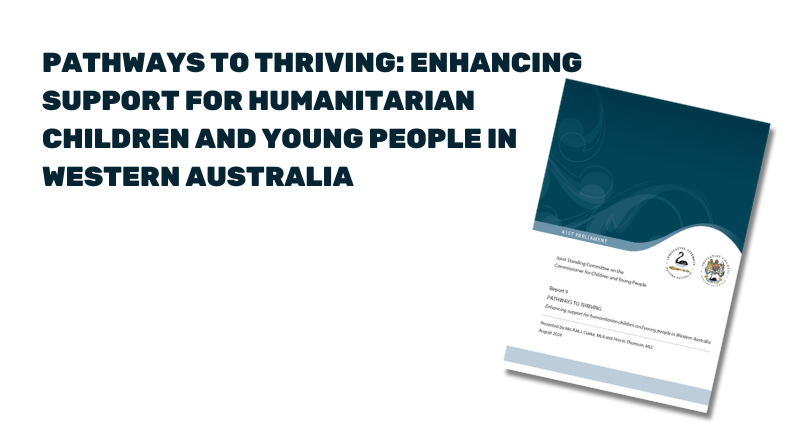What is Cultural Competency? Develop your understanding and practice.
- Gain a deeper understanding of the concepts of ‘Culture’ and ‘Cultural Competency;
- Develop an understanding of the importance of cross-cultural communication skills;
- Increase knowledge of cultural diversity;
- Take Action : How to apply cultural competency in your workplace.
Understanding Refugee and Asylum Seeker Experiences
Information about the ‘refugee/asylee experience’ and the framework used by ASeTTS’ staff for understanding and working with the psychosocial impact of torture and/or trauma.
A recommended introduction to further training for anyone having contact with people from refugee and humanitarian backgrounds.
This workshop will:
- Help you understand the refugee journey
- Increase your awareness of the impact of torture/trauma on everyday life
- Define the meaning of the terms ‘refugee’ and ‘asylum seeker’
- Explore Australia’s part in the international refugee intake
- Identify different facets of the refugee experience and related torture/ trauma symptoms
- Introduce the ‘Model of Recovery’
- Present an overview of ASeTTS’ services
Compassion Fatigue: Resiliency in the workplace
This workshop will explore:
- What is Compassion Fatigue and what are the causes?
- How to identify warning signs and symptoms in self & others
- The impact on workers and organisations
- The solution — Prevention and resilience
- Developing self-awareness, lifestyle balance and support networks
- Self care — Design your personal resiliency plan
Applied Suicide Intervention Skills
In this workshop participants will be better prepared to:
- Reflect on how their attitudes and beliefs about suicide affect their intervention role.
- Discuss suicide with a person at risk in a direct manner.
- Build a collaborative approach to intervention focused on safe outcomes.
- Review immediate suicide risk and develop appropriate safe-plans.
- Demonstrate skills required to intervene with a person at risk of suicide.
- Identify resources available to a person at risk of suicide.
- Make a commitment to improving community resources.
- Recognise that suicide prevention is broader than suicide first aid and includes life-promotion and self-care for caregivers.
Healthy Relationships: Understanding Domestic Violence within Refugee Communities
This workshop will provide you with the opportunity to:
- Explore the correlation between trauma and domestic and family violence in refugee and asylum seeker clients.
- Introduce key learning and recommendations from past and current ASeTTS research and projects focused on domestic and family violence.
- Introduce best practice guidelines for addressing domestic and family violence with people from refugee and asylum seeker. backgrounds
Incidental Counsellor: Responding to trauma behaviours
This workshop will explore:
- The role of the incidental counsellor and how it differs from professional counselling
- Key strategies for responding to disclosure of traumatic material
- Developing skills for identifying and responding to signs of trauma: depression, anger, dissociation, anxiety and panic attacks, and crisis situations
- Setting professional boundaries and maintaining self-care
- Making appropriate referrals
Suicide Risk in Refugee and Asylum Seekers
This workshop will explore:
An introductory tools and skills in addressing the risk of suicide in refugees and asylum seekers. The workshop explores specific risk and protective factors for suicide in asylum seekers and refugees, with the aim of increasing participants’ insight into the challenges faced by this population and how these challenges interact with risk of suicide. Participants will be introduced to a suicide risk assessment framework and apply this framework to working with refugees and asylum seekers. The workshop will also look at the impact of working with suicidality on the worker themselves, with a focus on self-care.
Working Effectively with Interpreters
This workshop will explore:
- Best practice when working with interpreters and the importance of using interpreters
- The diversity of languages in Western Australia
- Skills and strategies for working with interpreters, both on-site and via telephone
- An interpreter’s perspective
- Policies governing the use of professional interpreters








